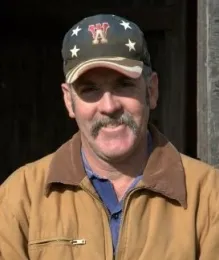
Those of us involved in agriculture in the North Bay operate in a very special area and are in a very unusual business. That being said, I think we could all agree that our commitment to our industry and life style is second to none. Day-in and day-out, we deal with markets that we can only respond to; the weather can smile on our business or give us huge challenges. We are dedicated to the point that many of us generate outside income just to keep our farm businesses going. We make these decisions all while NOT choosing the easiest option to generate income--selling the family farm.
While discussing selling the family farm or ranch can be considered blasphemy, the real question to discuss is what is the long term work being done to protect this resource? Our farms and ranches are places where we not only have made a living, but where we have grown up and learned life skills like hard work and responsibility. These are places where we have celebrated family weddings, welcomed the birth of the next generation, and gathered to mourn the passing of previous generations.
As we take on the management of our family business, we make decisions in response to variables like weather and markets that we have no control over. While we spend time and energy working on the day-to-day and year-to-year decisions, that have huge variables outside our control, we all too commonly put off making the really long term decisions that have relatively clear factors to consider. This planning that is so often put off and avoided is the planning for the succession of the family farm or ranch. If this step is not taken, then all the hard work of generations can be lost in one great act of procrastination.
Fortunately, unlike the daily, weekly, and annual variables that affect our business plans, what we have to pass on is probably clear and easy to define in our agricultural businesses, farms, ranches, and homes, all of which are tangible and not likely to change suddenly. I bet most farmers and ranchers, if asked could also quickly identify who would be best to pass their assets to and why.
It is often helpful to take these tangibles to a professional, such as a lawyer or accountant, so that they can help craft a plan with you to meet the goal that you have in mind. Now this is not easy, not quick, and probably not cheap It will take a lot of thought, but it can be done, and is most often a project with a much smaller number of variables than what we deal with every day.
I know that farmers and ranchers prefer to do work with more immediate and tangible results, like building a fence, feeding our livestock, or improving our businesses. But to think all that short term work can be lost if there is not time spent on a long term project is too great a risk. We have all seen families that did not plan for succession as they should have. An investment in planning could have saved countless hours of angst, hard feelings, legal fees, and in the worst cases, the loss of the family farm.
The question is, how much are you willing to spend on seeing your hard work and the hard work of past generations continue on? I can't think of any other investment in our industry that will pay dividends like good succession planning.
It's Time to Make a Plan! Learn strategies and actions to implement family farm transition and succession planning in order to secure the future of your estate and agricultural business at the upcoming Grown in Marin Workshop on Succession Planning on November 16 and 17. Walk away with a working binder with next steps to put your plan into action. Register online now.
